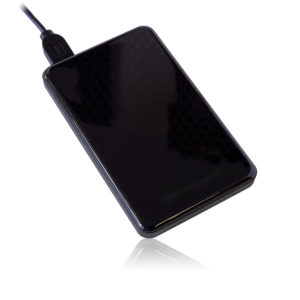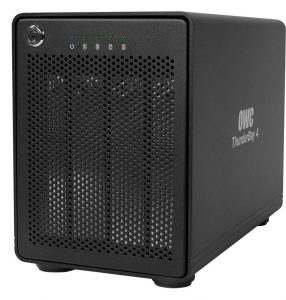 While solid-state drives (SSDs) are quickly becoming the go-to option for internal data storage, external hard drives are still popular with consumers, and for good reason. If you need to store a large number of files, an external hard drive can handle the job at a much lower price per gigabyte than SSDs or other forms of flash media.
While solid-state drives (SSDs) are quickly becoming the go-to option for internal data storage, external hard drives are still popular with consumers, and for good reason. If you need to store a large number of files, an external hard drive can handle the job at a much lower price per gigabyte than SSDs or other forms of flash media.
With that said, many consumers have misconceptions about how external hard drives function. That’s especially true for external enclosures that are designed to have a HDD inserted into them — turning any internal HDD into an external HDD.
How does an external hard drive enclosure work?
An external hard drive enclosure is fairly simple: An adapter chip allows the device to communicate with your computer via USB, Thunderbolt, or another data interface. Most enclosures also have fans to keep the hard drive (and the adapter) cool during operation.
But while they’re fairly simple devices, not all enclosures are equal — it’s important to shop carefully, especially if you’re looking for an enclosure that doesn’t come with a hard drive preinstalled. We recommend purchasing enclosures from well-known manufacturers.
What about RAID enclosures?
 RAID (Redundant Array of Independent Disks) refers to a range of virtualization technologies that combine multiple disk drives into a single logical unit. RAID enclosures generally have built-in controllers that support one or more RAID levels.
RAID (Redundant Array of Independent Disks) refers to a range of virtualization technologies that combine multiple disk drives into a single logical unit. RAID enclosures generally have built-in controllers that support one or more RAID levels.
While RAID can limit the chances of certain data loss scenarios, it’s important to remember that redundancy is not backup. Even if you’re running a RAID array with multiple levels of redundancy (which means that multiple individual hard drives can fail without compromising data), you should back up important files to a separate device.
Related: Should Home Computer Users Invest in a RAID Array?
Can an external hard drive enclosure cause my hard drive to fail?
This is a tricky question — but the simple answer is no, a well-designed external hard drive enclosure shouldn’t meaningfully impact your chances of a hard drive failure.
Of course, it’s also true that by placing a hard drive into an external enclosure, you’re introducing an additional point of failure (the enclosure’s electronics). You may also raise your risk of data loss in several ways:
- Some enclosures provide hardware data encryption as a security feature. If hardware encryption is enabled, you may lose data if the enclosure fails — regardless of whether the hard drive fails — depending on the method of encryption.
- External hard drives are, well, external. They’re naturally more susceptible to physical damage, since they’re more likely to fall or sustain other types of mistreatment.
- Low-quality enclosures may have inferior electronics, which may be more prone to power surges and data corruption.
The bottom line: You shouldn’t trust any individual device to store the only copy of important data. Always have at least two copies of mission-critical files (including one offsite copy).
Why did my external hard drive’s enclosure fail?
The most common cause of enclosure failure is overheating. When any electronic device overheats, solder can melt, leading to a host of issues — and that’s more common with low-quality products with inferior soldering, or when operating temperatures become excessive. A failed exhaust fan, for example, may quickly lead to overheating.
What should I do if my external hard drive fails?
If you don’t need the data from the device, you can simply replace it. Of course, that’s not always the case.
The data recovery prognosis for external hard drives is fairly good. To improve your chances of a successful recovery, immediately disconnect the hard drive’s power as soon as you notice signs of data loss.
Operating a failed hard drive — even for a few seconds — can cause permanent damage to the platters that store your data. The read/write heads can come into contact with the platters, creating rotational damage that prevents recovery. Learn more about read/write head crashes.
Datarecovery.com provides risk-free evaluations for all hard drives, including all external data storage devices. We also support our services with a no data, no charge guarantee: If we’re not able to recover the files you need, there’s no charge for the attempt.
To learn more, call 1-800-237-4200 or submit a case online.





